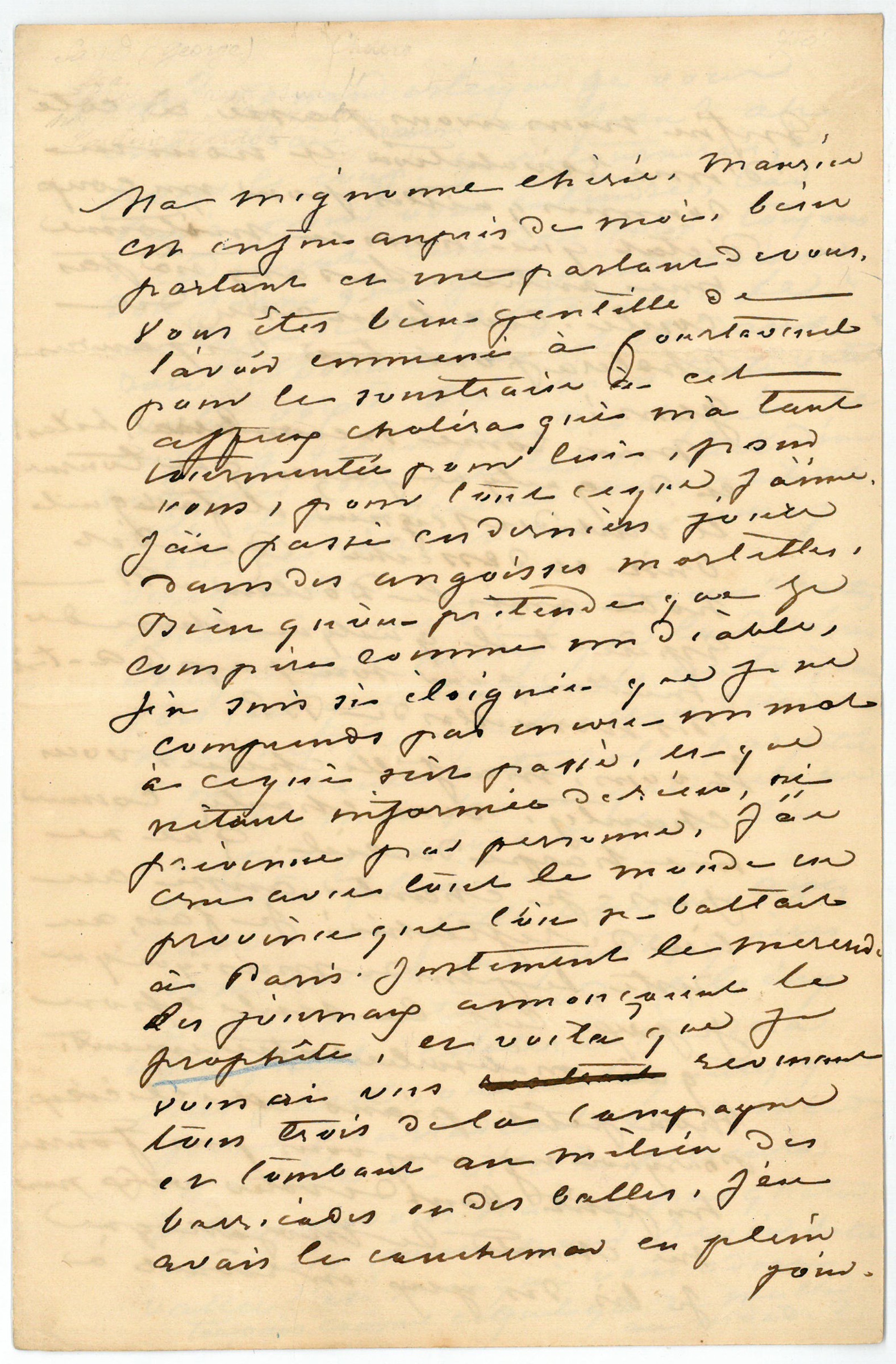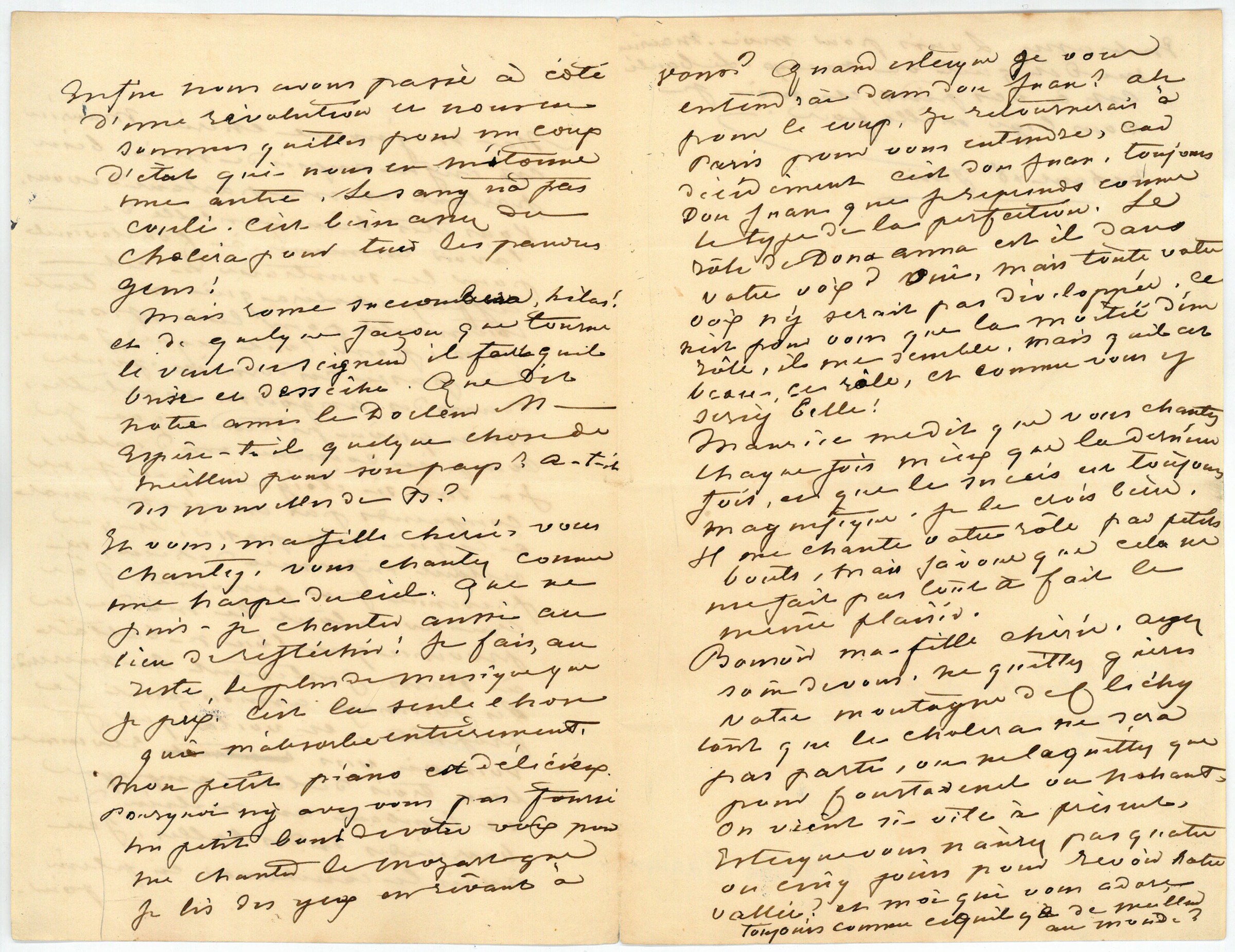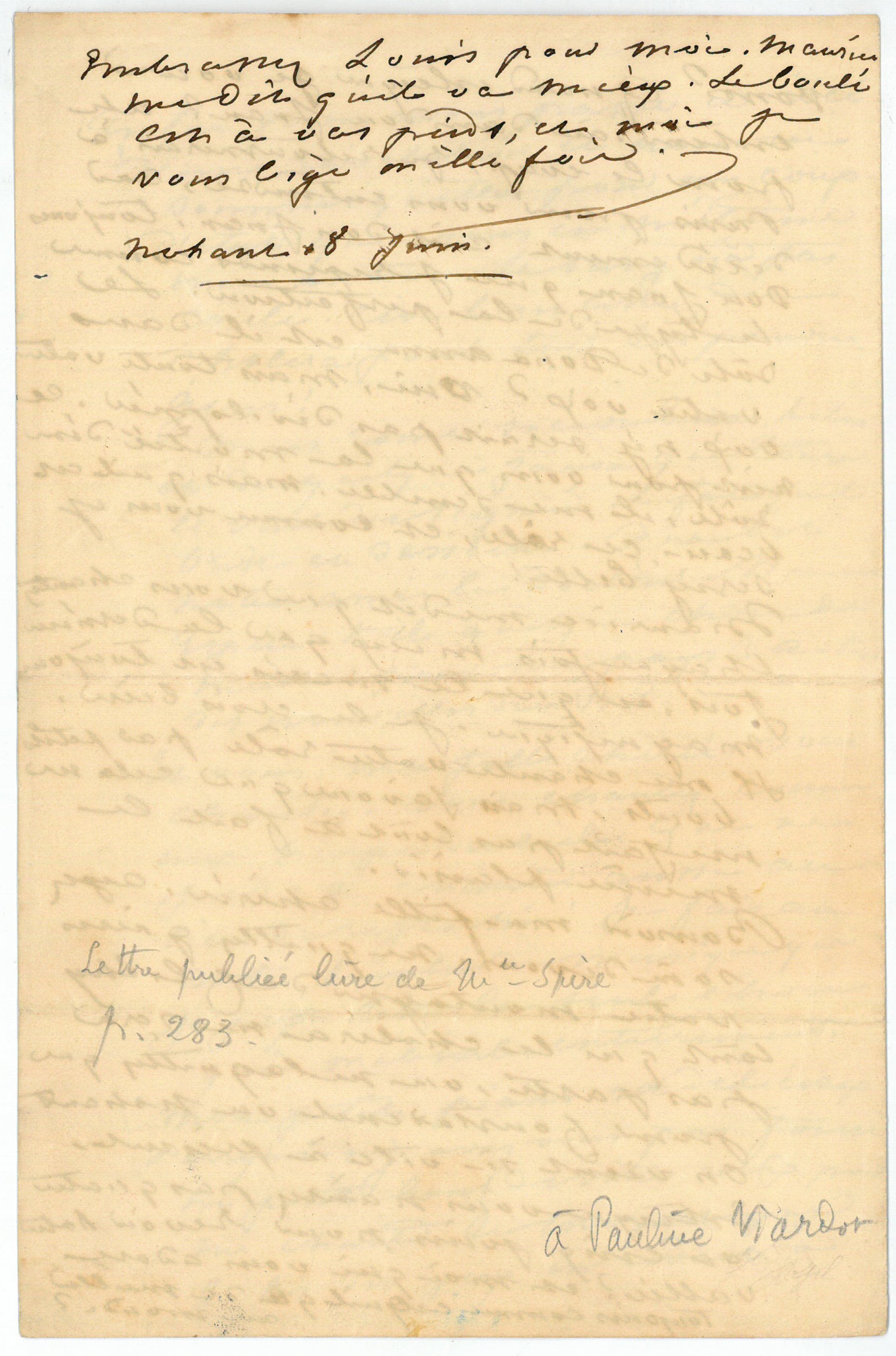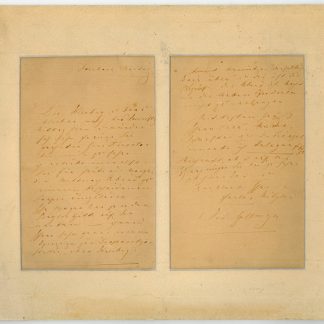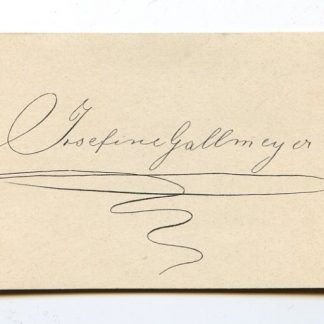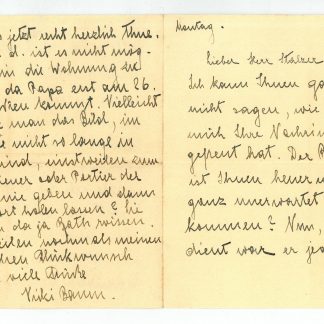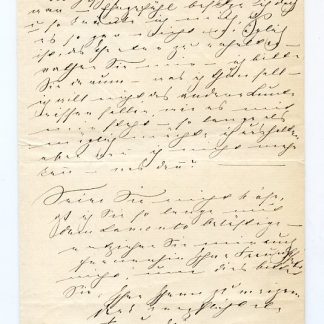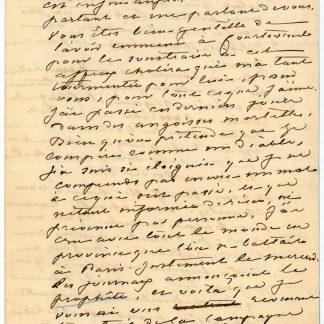"Why cannot I sing, too, instead of thinking": George Sand and Pauline Viardot
Autograph letter.
8vo. 3¼ pp. on bifolium. In French.
€ 2,500.00
Beautiful, comprehensive letter to her close friend, the mezzosoprano Pauline Viardot (1821-1910), touching upon various subjects including an 1849 cholera epidemic in Paris, the unsuccessful insurrection of 13 June 1849 led by Alexandre Ledru-Rollin, and the role of music in her life, particularly praising Mozart's Don Giovanni.
Sand informs Viardot that her son Maurice has arrived in Nohant, thanking her vividly for accompanying him to the Viardot family home in Courtavenel (Vaudoy-en-Brie) south-east of Paris from where he continued his journey. Due to the "dreadful cholera" epidemic and lack of information concerning Ledru-Rollin's revolt, Sand had "spent the last few days in mortal anguish", believing, like "everyone else in the provinces", that there was fighting in the streets of Paris, even if people "pretend" that she "conspires like a devil". She even "saw the three of you coming back from the countryside and falling into the middle of barricades or bullets. It was like a nightmare in broad daylight". At this point she knew that the insurrection was a failure and, to her relief, that there had been no bloodshed, although she sympathized with Ledru-Rollin and his opposition to the French military campaign against the short-lived Roman Republic: "But Rome will succumb, alas! and whichever way the Lord's wind turns, it must break and dry up". In this context, she inquires with Viardot what their mutual friend, the German revolutionary and philologist Hermann Müller-Strübing (1812-93), thinks about the most recent revolutionary events in France and Germany and whether he has any news of Mikhail Bakunin, who was imprisoned since the May Uprising in Dresden (3-9 May 1849): "What does our friend Doctor M. have to say? Does he hope for something better for his country? Has he heard from B.?".
The central part of the letter, wherein Sand speaks of music and her wish to hear Viardot sing Donna Anna in Don Giovanni, is worth quoting in full: "And you, my darling daughter, you sing, you sing like a harp from heaven. How I wish I could sing instead of thinking! Besides, I make as much music as I can. It's the only thing that absorbs me completely. My little piano is delicious. Why don't you stick a little bit of your voice in there and sing me the Mozart I read with my eyes, dreaming of you? When will I hear you in Don Juan? Ah, I'd go back to Paris to hear you, because it's definitely Don Juan, always Don Juan, that I take as the epitome of perfection. Is the role of Donna Anna in your voice? Yes, but your voice wouldn't be developed in its entirety in it. It's only half a role for you, it seems to me. But what a beautiful role it is, and how beautiful you would be in it! - Maurice tells me you sing better every time than the last, and that the success is always magnificent. I believe him. He sings your part to me in bits and pieces, but I confess it doesn't give me quite the same pleasure".
That same year Viardot sang different roles in Don Giovanni, including Donna Anna, as George Sand had hoped.
Insignificant browning.
Published in Thérèse Marix-Spire (ed.), Lettres inédites de George Sand et de Pauline Viardot 1839-1849 (Nouvelles Éditions Latines: Paris, 1959), pp. 283 f.

